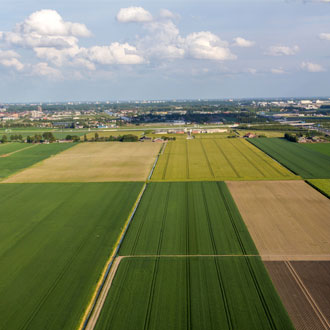Preparing for diversification and avoiding disputes in the future
Not surprisingly, there are various legal issues that need to be considered by landowners before embarking upon your diversification scheme. Johanne Spittle FALA and head of litigation at Ware & Kay solicitors explains that top of your list should be checking whether there are any restrictions that might limit possible use of your land and access to it.
Access
It is common for farms and agricultural land to be accessed along private roads or tracks. If use of this road is required for the diversification project, for example to access the proposed farm shop or your commercial development, it will be necessary to establish ownership of the road or rights granted over it at the outset.
If access is required over a road or track that is owned by a neighbouring landowner and over which you have been granted a right of way you will need to ascertain whether there are any limitations on use, for example if use is restricted to agricultural use, and whether there are any other obligations that apply such as maintenance or an obligation not to cause nuisance, annoyance or disturbance to that neighbouring landowner. Similarly, you may own the road but others may have rights over it that might be affected by your increased use.
Alternatively it is common to find that the title deeds are silent as to ownership of farm roads and in these situations the law says that the presumption is that the boundary of the land adjoining it extends up to the midway line so that you and your neighbour each own half of the access road.
Whatever the position with regards to access to your proposed diversification project, it is sensible to address the areas of potential  dispute at the outset when your relationships with neighbours are good and arrangements can be put in place that are acceptable to you both.
dispute at the outset when your relationships with neighbours are good and arrangements can be put in place that are acceptable to you both.
Restrictions on land use
You should also check your title to find out whether there are any limitations on possible use. Where your land has previously formed part of a much larger estate which was divided up, it is possible that the original estate owner will have imposed restrictions on land sold off to protect and benefit the land retained; these are called restrictive covenants. Potentially problematic covenants might be:
- not to use the property for any purpose other than as agricultural land: this may affect certain developments such as holiday cottages or commercial units;
- not to do anything on the property that may be a nuisance or annoyance to the owners or occupiers of the retained land: this might affect a leisure development that attracts a significant increase in cars and members of the public such as summer festivals and family fun attractions.
- not to erect any building or structure on the property other than agricultural use without prior written consent or not to carry out any development at the property.
Again it is sensible to address such restrictions sooner rather than later. If approached the person with the benefit of the covenant may be perfectly happy with what you are proposing to do; that should then be documented by a release or variation of the covenant by deed. A handshake will not be good enough because attitudes and owners can change, particularly if they are inconvenienced by increased traffic, thoughtless parking or noise.
It is important to ensure that any negotiations with neighbours about land use and access are dealt with when relationships are good. Once relationships break down and a dispute has ensued, it will be much harder and more expensive to resolve particularly if the dispute escalates into proceedings before the Courts or the Upper Tribunal (Lands Chamber).
For advice on avoiding disputes when preparing for diversification or any other litigation or dispute matter, please contact Johanne Spittle on 01904 716018 or email Johanne.spittle@warekay.co.uk
- Log in to post comments

